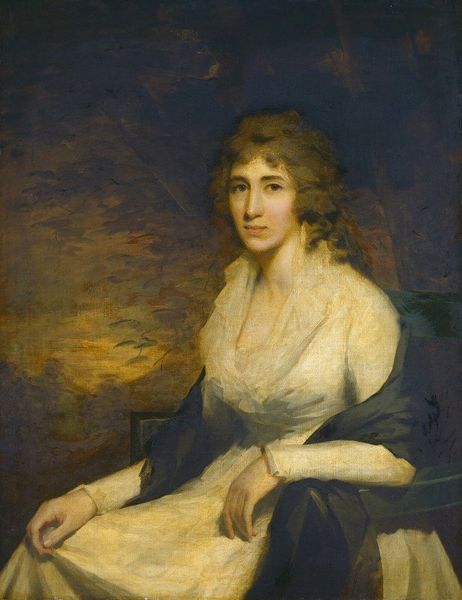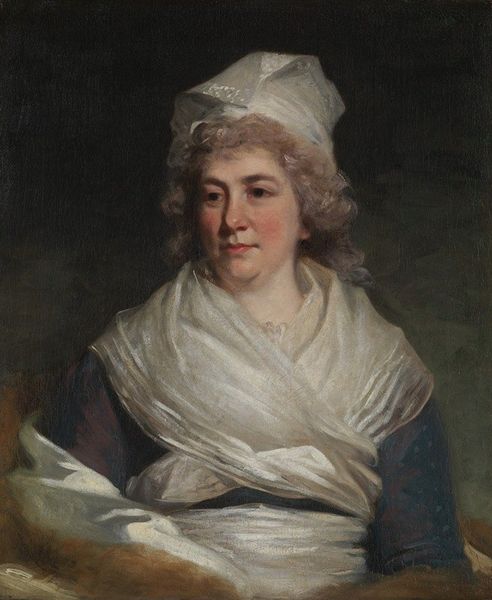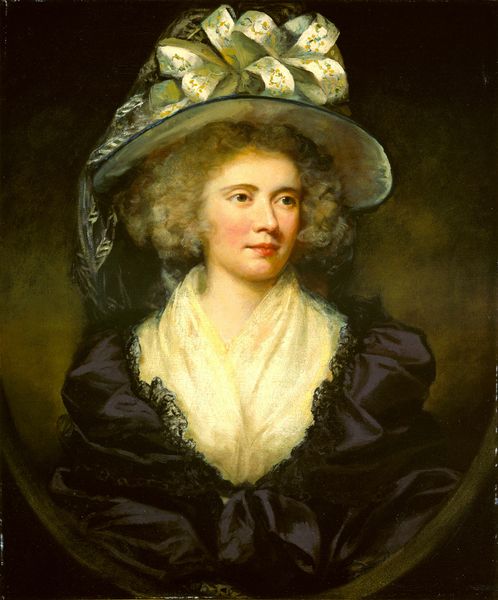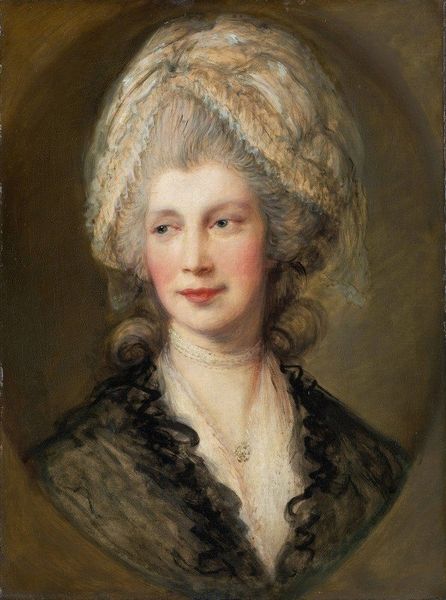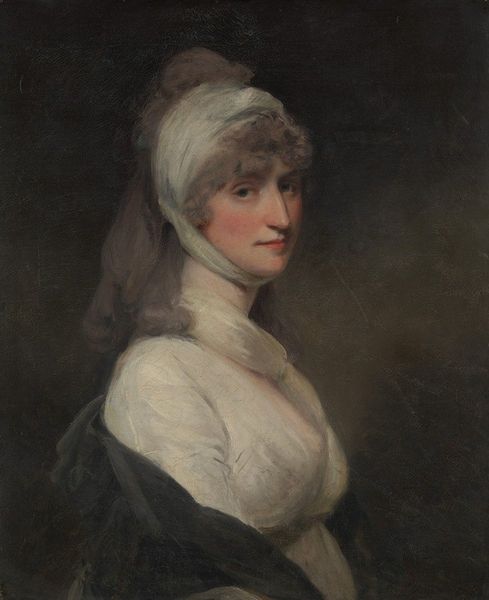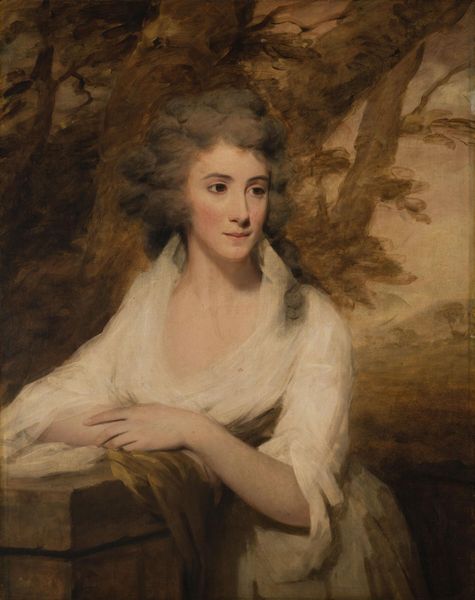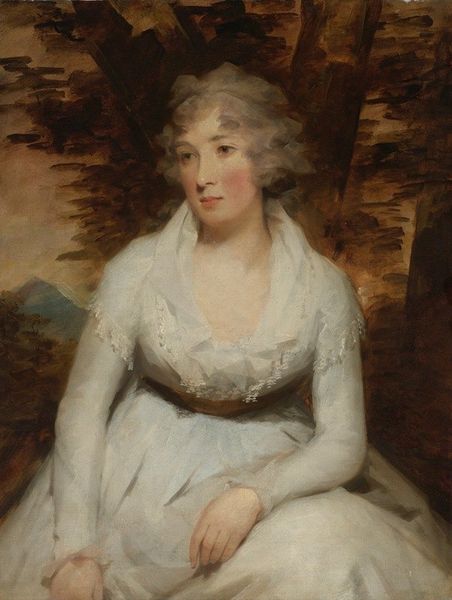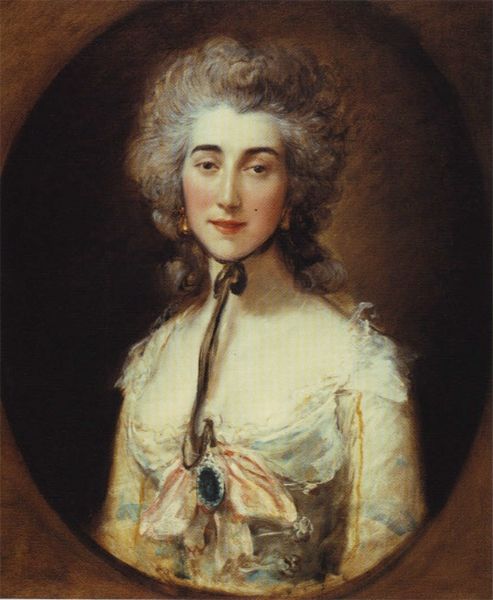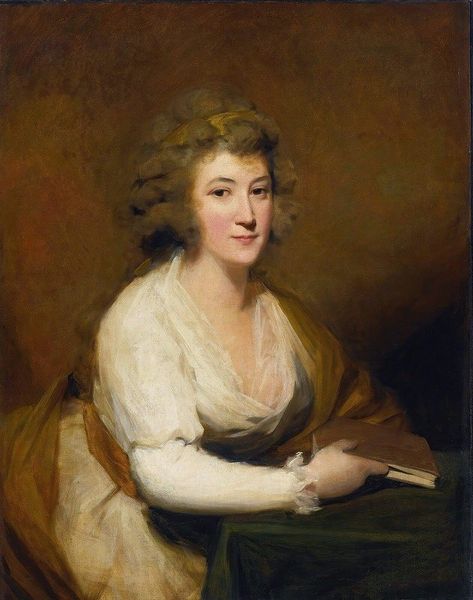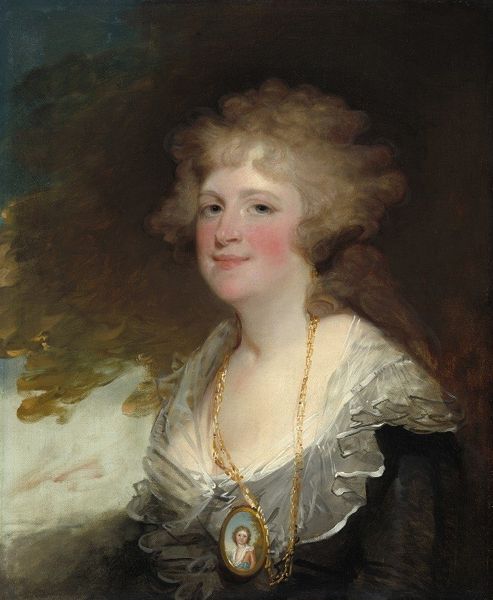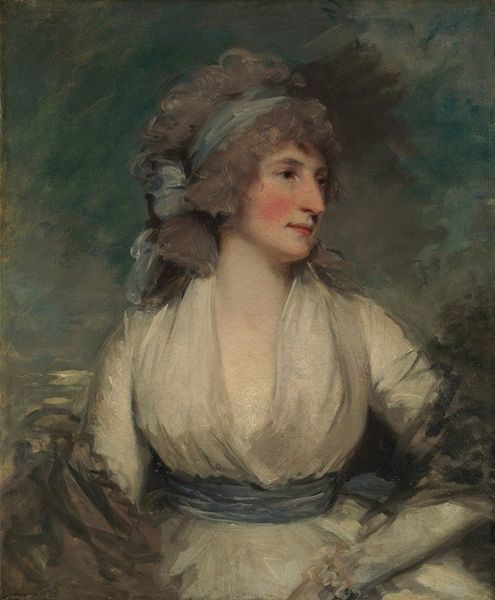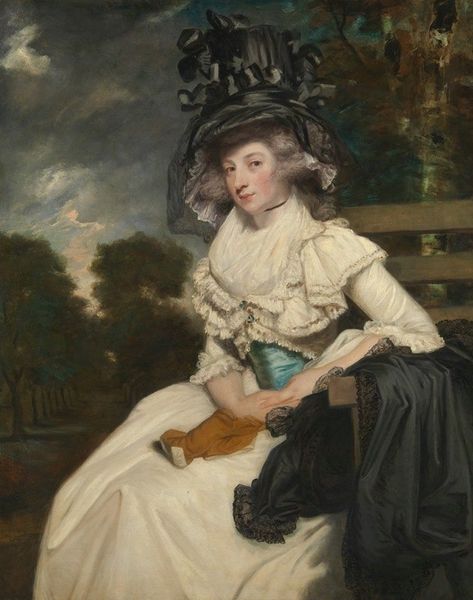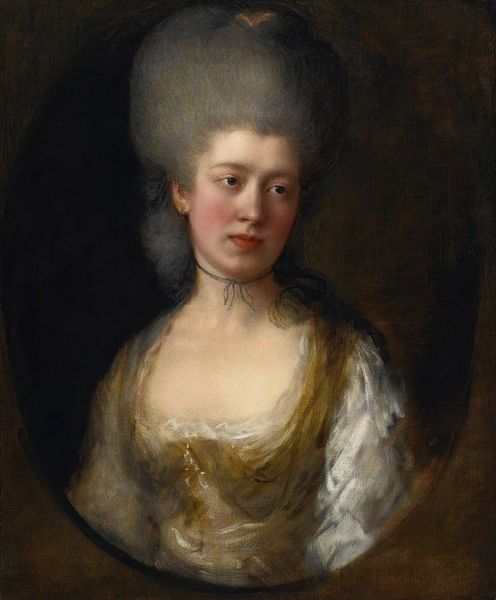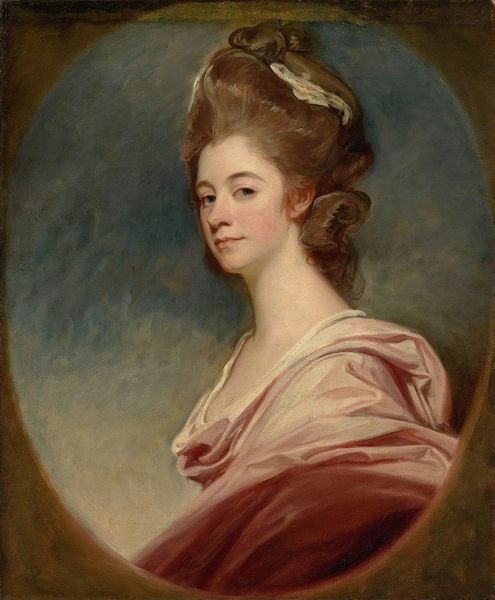
oil-paint
#
portrait
#
figurative
#
oil-paint
#
romanticism
#
genre-painting
Copyright: Public Domain: Artvee
Editor: This is John Hoppner's "Mrs. Moncrieff," painted around 1790, in oil. There’s something quite arresting in the way she meets your gaze, almost challenging, wouldn't you agree? What symbols are at play in this piece? Curator: Indeed. Look at the details; a pearl necklace is often associated with purity and modesty. But how might that contrast with the almost defiant look in her eyes? And see how the delicate fabric draped over her head speaks of her status, but also perhaps of a contained identity. What feelings are these elements attempting to convey, consciously or unconsciously, about femininity? Editor: That's an interesting counterpoint. The landscape peeking from behind almost seems to symbolize a world she can't fully access, being bound by social expectations. Is that intentional, do you think? Curator: Possibly. The Romantic period often used nature to mirror inner turmoil. Consider how this subdued landscape operates. Are the gathering clouds indicative of turbulent thoughts or anxieties that are barely suppressed beneath a veneer of composure? It speaks of human emotion being intrinsically linked with and mirroring the natural world, a key concept in the cultural memory of the period. Editor: It's almost as if the setting reflects the sitter's inner feelings, or at least invites that interpretation. Curator: Precisely. Art in this era thrives on suggestive symbolism and subtle psychological messaging. Now, ponder how the placement and colours encourage those perceptions? Are we truly seeing a portrait of Mrs. Moncrieff, or a projection of ideals about womanhood and the hidden layers beneath? Editor: This has made me appreciate the complexity in what initially seemed to be just another portrait. Curator: Absolutely. And those complexities reveal how images preserve social values.
Comments
No comments
Be the first to comment and join the conversation on the ultimate creative platform.
